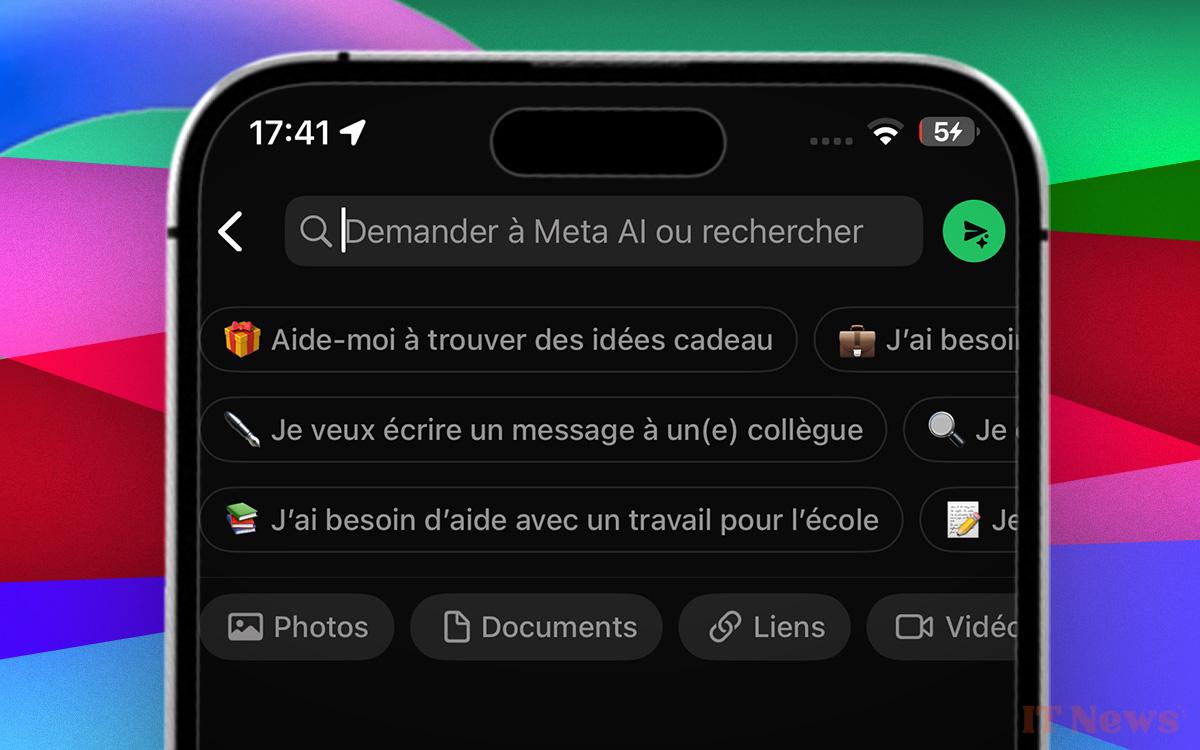Believe it or not, EVERYTHING you ask Meta AI on Instagram, Facebook, and WhatsApp ends up in plain text on a feed accessible to everyone on the internet. A huge problem for user security and privacy, according to a security researcher.
There is a disclaimer when you first use it, but is it enough? By design, everything users ask Meta AI ends up published in the Discovery tab of the dedicated app, and the web version of the service. This includes quite a few requests that seem to have been made with the intention of being private from the outset.
And we're talking about text here, but also images... Our colleagues at BBC have thus identified, with a security expert, a series of contents that would likely have no place in the publicly accessible feed of this artificial intelligence. There are many examples: questions about a person's gender, wondering if they should transition, requests to create racy characters from animals, and many other awkward questions, with the result.
Avoid using Meta AI for overly personal requests
Most of the time, it remains difficult to trace back to the user themselves. Except when the latter posts, for example, their profile picture. This is something the researcher noted in at least one instance when writing the BBC article. This is not really a surprise for the specialized audience that we are. Indeed, the presence of this public feed was announced as early as April in a press release.
Nevertheless, the information has likely "passed through" for a large majority of users of Instagram, WhatsApp, Facebook and other Meta platforms. Especially since even if the warning is present, the usual behavior of users is most often not to read the message and simply click accept. BBC explains that a setting allows to make all requests to Meta AI private to prevent them from ending up on the internet.
A setting that we have had great difficulty finding for the moment from France, leaving the hope that this default publication behavior is not yet the norm in Europe for regulatory reasons. Most likely, changing this setting will involve going through the dedicated Meta AI application – which remains partially functional in France for the time being. While waiting for clarification from the firm on the subject, we recommend our readers not to use Meta AI or at least to be very careful with what you ask it.




0 Comments